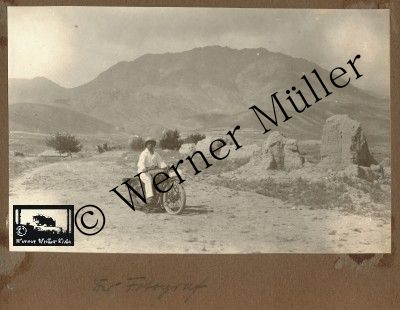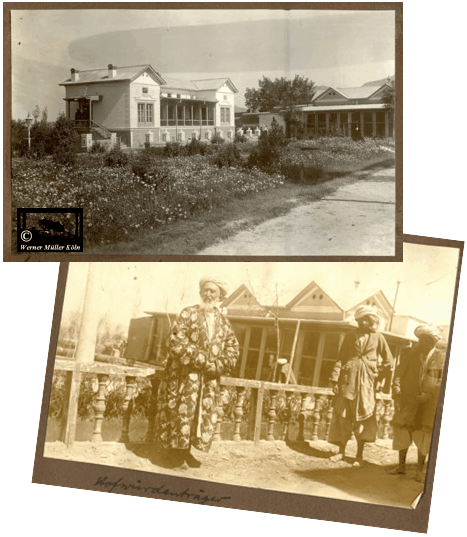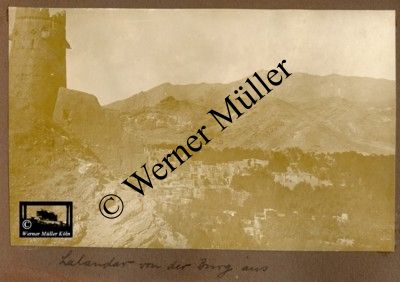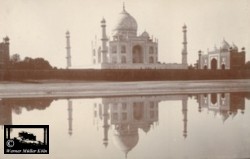 |
 |
 |
 |
 |
 |
 |
 |
 |
 |
 |
 |
 |
 |
 |
 |
 |
 |
 |
 |
 |
 |
 |
 |
 |
| |
|
|
On
the way to get to know land and people |
|
|
| |
|
|
|
|
|
|
|
|
|
|
|
|
|
|
|
|
|
|
|
|
|
|
|
 |
|
The two friends were
traveling in Afghanistan to get to know the country and its people. As you
can see on the pictures, this was done by motorbike or by horse.
Unfortunately, I do not know where these recordings were made. In any
case, these two photos were taken in the same place. In addition, the
optical disk camera was on a tripod, because it is the same setting. The
photos of these tours can be found here on the page under the photo
albums. |
| |
| |
| |
| |
| |
| |
| |
| |
|
|
|
|
|
|
|
|
|
|
|
|
|
|
|
|
|
| |
|
| |
|
|
|
| |
|
|
|
| |
|
|
| |
|
"The
photographer" |
|
|
|
|
| |
|
|
|
|
|
|
|
|
|
|
|
|
|
|
|
 |
|
|
|
| |
|
|
| |
|
|
| |
|
|
| |
|
|
| |
|
|
| |
|
|
| |
|
|
| |
|
|
"Mr.
Maass" |
| |
|
|
|
|
|
|
|
|
|
|
|
|
| |
|
|
| |
|
| |
|
| |
|
| |
|
| |
|
| |
|
| |
|
| |
|
| |
|
| |
|
| |
|
| |
|
| |
|
| When my
great-grandfather photographed these children, my grandmother was in
distant Berlin at about the same age ...... |
|
|
|
"mosque
in Kandahar"
text on the backside:
"for
my opinion the most beautiful city in
Afghanistan" |
| |
|
|
| |
|
|
| |
|
|
|
|
|
|
|
|
|
|
|
|
|
|
|
|
|
|
|
|
|
|
|
|
|
| Unfortunately, neither letter nor
the described diary have survived from this period . Therefore, I do not
know how my great-grandfather felt without a wife and daughter. But I can
imagine that it was not easy to live alone in a foreign country with a
foreign culture. In contrast to today, the distances between the cultures
were much larger. Letters were then, if they ever arrived, for weeks,
maybe even months on the way. Therefore, I believe that the photo series
of the children was caused by homesickness. |
| |
|
|
|
|
|
|
|
|
|
|
|
|
|
|
|
|
|
|
|
|
|
|
|
|
|
Below
is a panoramic picture from Paghman, an idyllic village about 50
kilometers west of Kabul. Paghman was famous for its palaces and gardens.
King Amanullah was also born there.
|
|
| |
|
|
|
|
|
|
|
|
|
|
|
|
|
|
|
|
|
|
|
|
|
|
|
|
|
|
|
The photo shows Paghman taken
from a road on a hill taken west. |
| |
|
|
|
|
|
|
|
|
|
|
|
|
|
|
|
|
|
|
|
| |
If you move the
cursor over different parts of the overall view of Paghman, you can
recognize individual buildings. These are detail enlargements of the
original photos. |
| |
|
|
| |
|
|
|
|
|
|
|
|
|
|
|
|
|
|
|
|
|
|
|
|
|
| |
|
|
|
|
|
|
|
|
|
|
|
| |
|
|
|
|
|
|
|
|
|
|
|
|
|
|
| |
|
|
|
|
|
|
|
|
|
|
|
|
|
|
On
the website of Ahmad Fraidoon Torialy you can see how beautiful
these buildings once were. |
|
| |
|
|
|
|
|
|
|
|
|
|
|
|
|
|
| Probably the picture
on the right is a summer excursion the Germans made to Paghman. The
sitting gentleman on the left could Dr. Gerber. My great-grandfather is
the second from the right. The names of the other gentlemen are not known.
Since he but with other Germans such. For example, if Mr. Standke
Sonnabend and Bünte lived together, it could be these gentlemen. His
friend Mr. Maass is not present. |
| |
"hotel
in Bagman" [Paghman] |
| |
|
|
|
|
|
|
|
|
|
|
|
|
|
|
|
|
|
|
|
|
|
|
|
|
|
During
these tours he also met the exiled Emir of Bukhara. Alim Khan was the last
Emir of Bukhara who was expelled from his homeland in 1920 by the Soviet
troops of General Frunze. The land was then transformed into the
independent Republic of Bukhara with the capital Samarkand. Later, Bukhara
became part of the Soviet Union's Republic of Uzbekistan.
|
| |
|
|
|
|
|
|
|
|
|
|
|
|
|
Unten: "The
residenz of the Emir of Buchara"
in his exil in Afghanistan. |
|
| |
|
|
|
|
|
|
| |
|
|
|
 |
| |
|
|
|
| |
|
|
|
| |
|
|
|
| |
|
|
|
| |
|
|
|
| |
|
|
|
| |
|
|
|
| |
|
|
|
| |
|
|
|
| |
|
|
|
| |
|
|
|
| |
|
|
|
| |
|
|
|
| |
|
|
|
| |
|
|
|
| |
|
|
|
| |
|
"Alim
Khan
the Emir of Buchara" |
|
|
|
|
| |
|
|
|
|
|
| |
|
|
|
|
|
|
|
|
|
|
|
|
 |
|
| |
| |
| |
| |
| |
| |
| |
Above: "dignitary" |
|
|
|
| |
|
|
|
|
|
|
|
|
|
|
|
|
|
| |
|
|
|
|
My grandmother told me
that he also learned the Afghan national languages. Unfortunately, she did
not know which Afghan languages he knew. |
| |
|
|
| |
|
| |
|
| |
|
| |
|
| |
|
| Of course he made
friends with Afghans. Here are two of his friends. |
|
|
|
|
|
|
|
|
|
|
|
|
|
|
| |
|
|
|
| |
|
|
|
|
|
|
|
|
|
|
|
|
|
|
 |
|
|
| |
|
| |
|
| |
|
| |
|
| |
|
| |
|
| |
|
| |
|
| |
|
| |
|
| |
|
| |
|
| |
|
|
"the
family of our hosts" |
"Lalander
seen from he hill" |
|
|
|
|
|
|
|
|
|
|
|
|
|
|
| |
|
|
|
|
|
|
|
|
|
|
| One of his trips took him and his
friends to the village of Lalande in central Afghanistan. He probably
stayed here with the family photographed above. Lalander has a total of
four photos. |
| |
|
|
|
|
|
|
|
|
|
|
|
| |
|
|
|
|
|
|
|
|
|
|
|
|
|
|
|
|
|
|
|
|
|
|
|
|
|
| During the
non-working time, he was traveling near Kabul. However, he used his
holiday to travel with friends to distant areas and countries. Here is a
photo of a ride he probably made in 1926 to India. Maybe he was on
vacation on the way home and drove from Dehli on Agra to Bombay. From
there by boat via Aden and Naples to Berlin. |
|
|
| |
| |
| |
| |
| |
|
|
|
|
|
|
|
|
|
|
|
|
|
|
|
|
|
|
|
|
|
|
 |
|
|
|
|
|
|
|
|
|
|
|
|
|
|
|
|
|
|
| |
|
|
|
| |
|
| |
|
| |
|
| |
|
| |
|
| |
|
Thaj
Mahal |
|
|
|
|
|
|
|
|
| |
|
|
|
|
|
|
|
|
|
|
|
|
|
|
| |
|
|
|
|
|
|
|
| |
|
|
| |
|
| |
|
|
Together with Mr.
Parron (left) and Baron Plessen on the way to India. Maybe he was
traveling home from Bombay. |
| |
|
|
| |
|
|
| |
|
|
| |
|
|
|
|
|
|
|
|
|
|
|
|
| |
|
The
fort Agra |
|
|
|
|
|
|
|
|
|
|
|
|
|
|
|
|
| |
|
|
|
|
|
|
|
|
|
|
|
|
|
|
|
| |
|
|
|
|
|
|
|
| |
|
|
|
|
|
|
| |
|
|
|
|
|
|
| |
|
|
|
|
|
|
| |
|
|
|
|
|
|
| |
|
|
|
|
|
|
| |
|
|
|
|
|
|
| |
|
|
|
|
|
|
| |
|
|
|
Bombay
the gate to India |
|
|
|
| |
|
|
|
|
|
|
|
|
|
|
|
|
|
|
| |
|
|
|
| |
|
| |
|
| |
|
| |
|
| |
|
| |
|
| |
|
| |
museum
of Bombay |
|
|
|
|
|
|
| |
|
|
|
|
|
|
|
|
|
|
|
|
|
|
|
|
|
|
|
|
|
|
|
|
|
| Since I do not know in which
order or when my grandfather visited the individual cities, I have not
drawn a route. But maybe I still get hints from the descendants of Messrs.
Parron and Plessen. |



